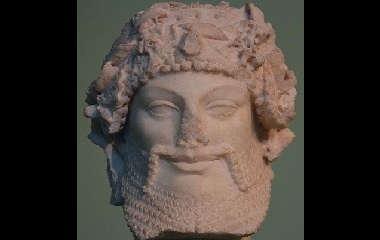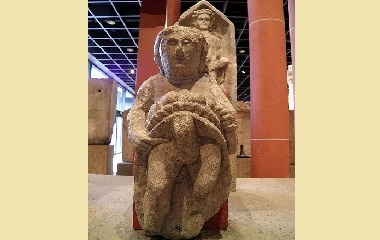Who is Priapus?
Priapus was a minor god in Greek mythology. His distinctive characteristic was his engorged phallus. In Roman mythology, his connection to Ares, the god of War, is more prominent, as Priapus taught the boy the skills of war. Cursed with his gigantic phallus while still in the womb by Hera, he was banished to Earth and raised by shepherds.
Origin
Priapus was worshiped as a deity and also developed a cult following which spread to Italy. The likely origin of his following is in ancient Greece, in the vicinity of Hellespont. The city of Lampsacus in Hellespont is posited as the god’s birthplace due to the ritual performed there. Followers performed a ritual sacrifice of donkeys which was directly linked to Priapus. In art, the god is occasionally depicted in a Persian cap, implying possible non-Greek origins. His influence continued right up until the apostolic era (33 AD – 100 AD) approximately.
Legends and Stories
The stories of Priapus focus on his disproportional organ primarily. Statues of the god were placed in fields to offer protection and hopefully bring about a bountiful crop. The statue also represented a no-entry symbol. Here it implied the trespassers would risk violent rape should they cross the boundary set in place. Rape of men and women was a common occurrence in ancient times. It was viewed as a form of punishment, yet there is no word in ancient Greek or Latin which has exactly the same connotations as the word rape is used today. The god was also the patron of seamen. Sailors used his statue to gain protection and guide their way on the open seas.
In the collection of poems called the Priapeia, thought to be authored in the classical period, we find a collection of epigrams about the god and his gargantuan member. The poems were believed to be written by a group of poets who used to gather at the house of Maecenas, a patron of poets. The god brags about the size of his manhood, his virility and warns of the sexual punishment he will inflict on any trespassing in his gardens or fields.
Lotis
Ovid’s Fasti, published in 8 AD, tells of the god trying to sneak up on the nymph, Lotis, when she falls into a drunken stupor at a celebration. Unfortunately, a donkey warns the party attendees of Priapus’ impending actions and awakens everybody. She prevents him from assaulting her and the god slinks off. Priapus later kills the donkey, leading to the popular sacrifice by the city of Lampsacus.
Appearance
The god is depicted as a bearded and muscular man, with a huge, red, erect phallus.
He is the subject of many Roman paintings, including a well-known fresco where he is seen weighing a bag of money against his phallus. The wall fresco is from the House of Vettii in Pompeii. His gnome-like statues were commonly found in gardens or at intersections in roadways in Rome and Greece. In order to gain the favor of the god, the traveler would need to stroke his phallus.
Modern Influence
Priapus features in many works of modern literature, including those by Vladimir Nabokov, TS Elliot, and John Steinbeck. His influence is also notable in religions. St. Priapus Church, a pagan religion, worships the phallus. Followers believe in worship through group masturbation and treat semen as godly. The Gnostic Catholic Church revered the god as a saint along with other saints such as Krishna, Mohammed, Merlin, Friedrich Nietzsche and Sir Aleister Crowley.
In the medical field, the god’s name is used in relation to a condition called Priapism – a permanently erect penis, even when not sexually aroused.










